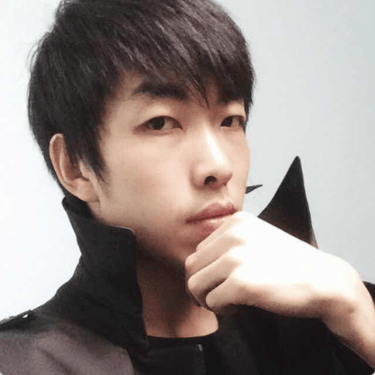

Most commonly used Chinese sentence structures and patterns, along with examples:
1. 是...的 (shì...de)
Used to emphasize specific information about an action, such as time, place, manner, etc.
Structure:
- Subject + 是 + Emphasized Information + Verb + 的
Examples:
- 他是昨天来的。(Tā shì zuótiān lái de.) — He came yesterday.
- 我是在北京出生的。(Wǒ shì zài Běijīng chūshēng de.) — I was born in Beijing.
2. 因为...所以... (yīnwèi...suǒyǐ...)
Used to express cause and effect, similar to "because...therefore..."
Structure:
- 因为 + Cause, 所以 + Effect
Examples:
- 因为下雨了,所以我们取消了计划。(Yīnwèi xiàyǔ le, suǒyǐ wǒmen qǔxiāo le jìhuà.) — Because it rained, we canceled the plan.
- 因为他努力工作,所以他得到了升职。(Yīnwèi tā nǔlì gōngzuò, suǒyǐ tā dédào le shēngzhí.) — Because he works hard, he got a promotion.
3. 除了...还... (chúle...hái...)
Used to indicate "in addition to...also..."
Structure:
- 除了 + Noun/Verb + 还 + Noun/Verb
Examples:
- 除了英语,他还会说法语。(Chúle Yīngyǔ, tā hái huì shuō Fǎyǔ.) — In addition to English, he can also speak French.
- 除了看电影,我们还去了博物馆。(Chúle kàn diànyǐng, wǒmen hái qù le bówùguǎn.) — Besides watching a movie, we also went to the museum.
4. 不但...而且... (bùdàn...érqiě...)
Used to indicate "not only...but also..."
Structure:
- 不但 + Clause 1, 而且 + Clause 2
Examples:
- 他不但聪明,而且很努力。(Tā bùdàn cōngmíng, érqiě hěn nǔlì.) — He is not only smart, but also very hardworking.
- 这道菜不但好吃,而且很健康。(Zhè dào cài bùdàn hǎochī, érqiě hěn jiànkāng.) — This dish is not only delicious, but also very healthy.
5. 虽然...但是... (suīrán...dànshì...)
Used to express contrast or concession, similar to "although...but..."
Structure:
- 虽然 + Clause 1, 但是 + Clause 2
Examples:
- 虽然天气很冷,但是他还是去了公园。(Suīrán tiānqì hěn lěng, dànshì tā háishì qù le gōngyuán.) — Although the weather is very cold, he still went to the park.
- 虽然他很累,但是他还是完成了工作。(Suīrán tā hěn lèi, dànshì tā háishì wánchéng le gōngzuò.) — Although he was very tired, he still finished the work.
6. 如果...就... (rúguǒ...jiù...)
Used to indicate a conditional statement, similar to "if...then..."
Structure:
- 如果 + Condition, 就 + Result
Examples:
- 如果你有时间,我们就去看电影。(Rúguǒ nǐ yǒu shíjiān, wǒmen jiù qù kàn diànyǐng.) — If you have time, we will go to the movies.
- 如果天气好,我们就去爬山。(Rúguǒ tiānqì hǎo, wǒmen jiù qù páshān.) — If the weather is good, we will go hiking.
7. 越...越... (yuè...yuè...)
Used to indicate "the more...the more..."
Structure:
- 越 + Adjective/Verb, 越 + Adjective/Verb
Examples:
- 天气越冷,我越想睡觉。(Tiānqì yuè lěng, wǒ yuè xiǎng shuìjiào.) — The colder the weather, the more I want to sleep.
- 他越说,我越不明白。(Tā yuè shuō, wǒ yuè bù míngbái.) — The more he talks, the less I understand.
8. 先...再... (xiān...zài...)
Used to indicate doing one thing first, then another.
Structure:
- 先 + Action 1, 再 + Action 2
Examples:
- 你先做作业,再玩电脑。(Nǐ xiān zuò zuòyè, zài wán diànnǎo.) — First do your homework, then play on the computer.
- 我们先吃饭,再去看电影。(Wǒmen xiān chīfàn, zài qù kàn diànyǐng.) — We will eat first, then go to the movies.
9. 一...就... (yī...jiù...)
Used to indicate that one action immediately follows another.
Structure:
- 一 + Action 1, 就 + Action 2
Examples:
- 我一到家就给你打电话。(Wǒ yī dào jiā jiù gěi nǐ dǎ diànhuà.) — I'll call you as soon as I get home.
- 他一看到我就笑了。(Tā yī kàndào wǒ jiù xiàole.) — He smiled as soon as he saw me.
10. 把 (bǎ)
Used to emphasize the handling or disposal of an object.
Structure:
- Subject + 把 + Object + Verb + Complement/Result
Examples:
- 请把门关上。(Qǐng bǎ mén guān shàng.) — Please close the door.
- 我把书放在桌子上了。(Wǒ bǎ shū fàng zài zhuōzi shàng le.) — I put the book on the table.
These sentence patterns are fundamental in Chinese and are widely used in daily conversation. Would you like more examples or further clarification on any of these structures?
